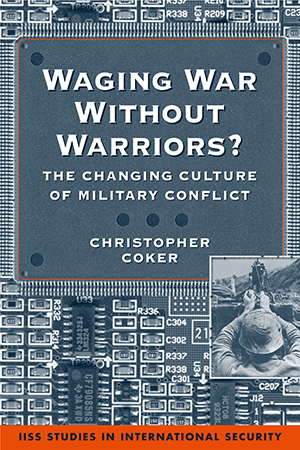
- 2002/223 pages
- IISS Studies in International Security
Waging War Without Warriors? The Changing Culture of Military Conflict
Coker offers both a history of martial cultures and an analysis of how these are now changing. He locates the origins of the Western way of war in ancient Greece: for example, in the heroic ideals of Homer's Iliad. He then traces the development of this warrior spirit, moving from Rome's systemization of violence to encounters with such alternative ways of war as Sun Tzu's, the Islamic tradition, and Japan's kamikaze actions during World War II. This trajectory, he finds, ends in a crucial contemporary fault line: for the first time in history, war is no longer considered humankind's most revealing behavior.
What does this mean for the future? Coker argues that tomorrow's combatants will be technicians and even machines, divorced emotionally from the battlefield. He elegantly explores the significance of an evolving culture of war devoid of the figure of the heroic warrior.







